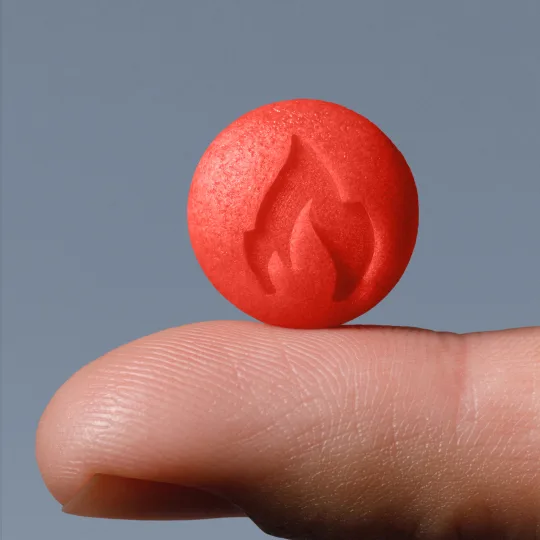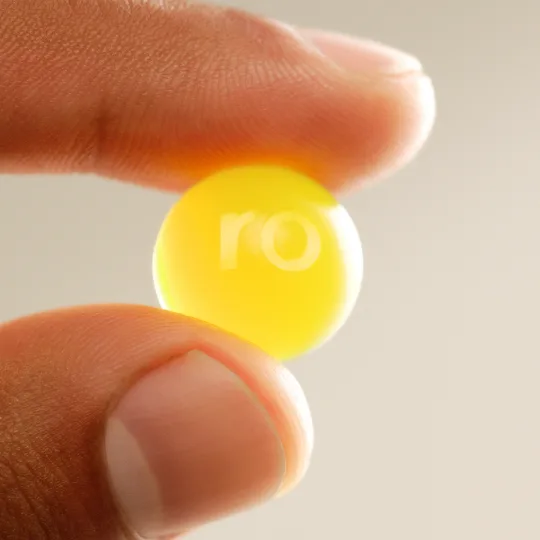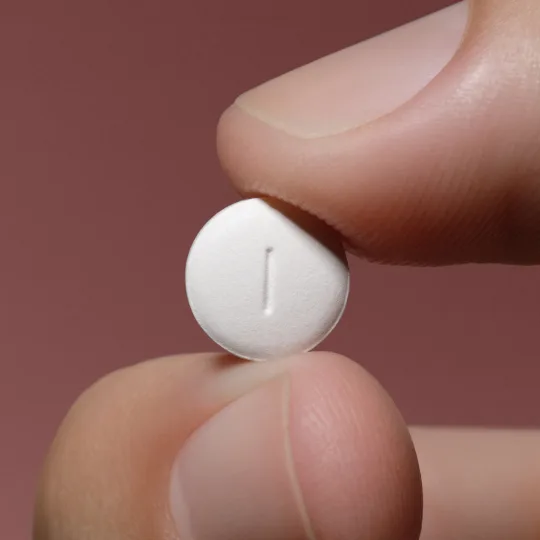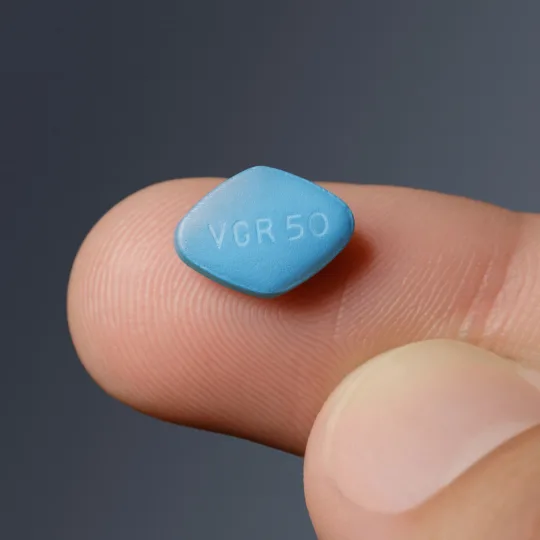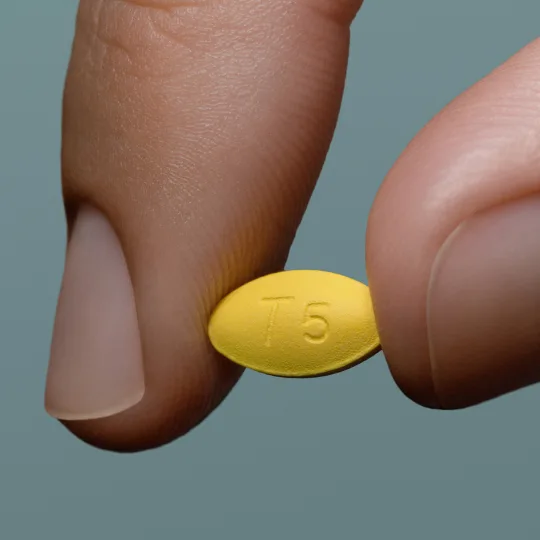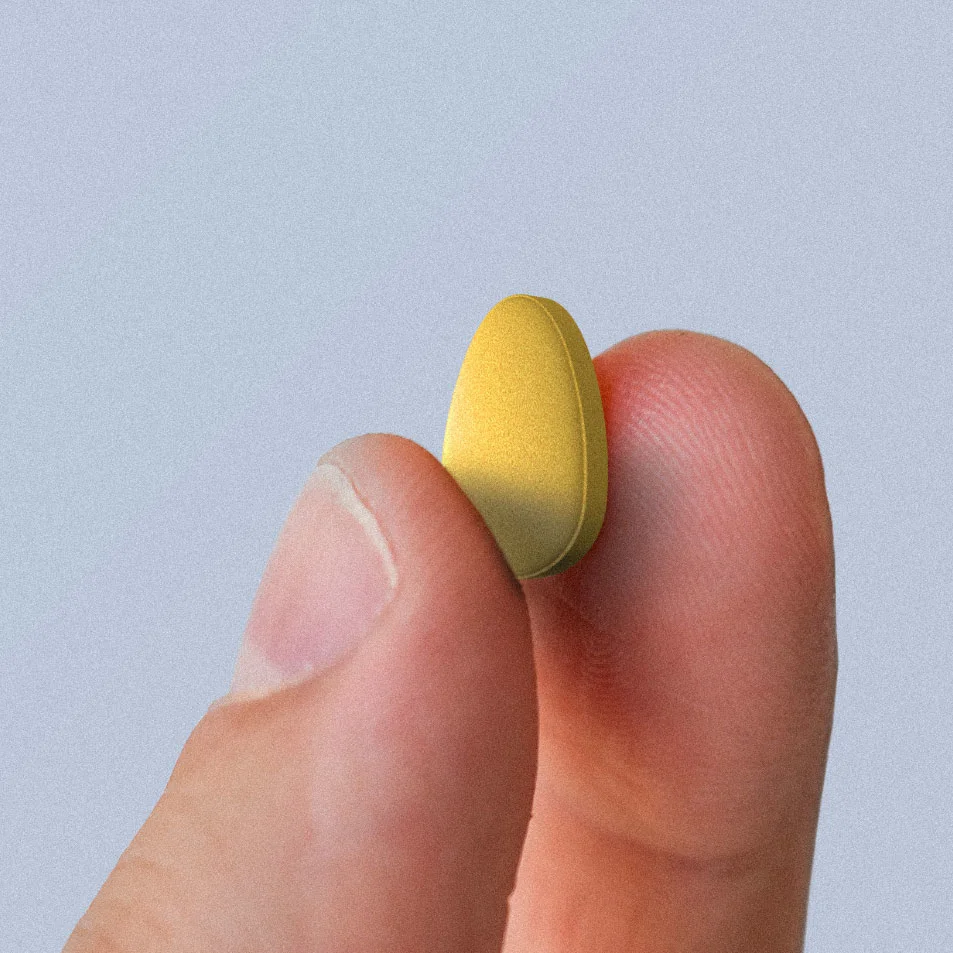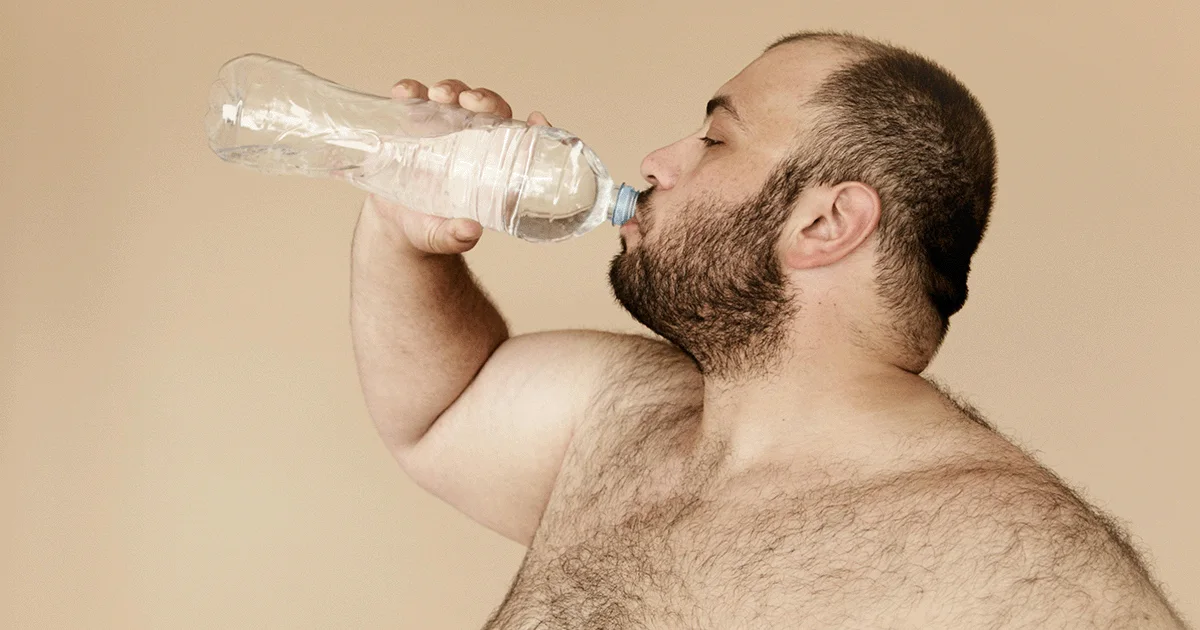Key takeaways
Avocados contain nutrients—such as folate, vitamin E, and zinc—that can support sexual function and reproductive health.
While the jury is still out on the benefits of avocado sexually, other important avocado benefits for men include reducing inflammation, aiding digestion, and supporting heart and blood vessel health.
Here's what we'll cover
Here's what we'll cover
Here's what we'll cover
Key takeaways
Avocados contain nutrients—such as folate, vitamin E, and zinc—that can support sexual function and reproductive health.
While the jury is still out on the benefits of avocado sexually, other important avocado benefits for men include reducing inflammation, aiding digestion, and supporting heart and blood vessel health.
Ah, avocado, the tropical fruit (yes, fruit) that’s become a household item on brunch menus everywhere. Not only does it deliver smooth, creamy goodness to seemingly every dish (even plain ’ol bread), but it also packs numerous health perks—many of which may support your sexual endeavors. So, what are the benefits of avocado sexually?
While more research is needed, avocados contain certain nutrients that can support improved blood vessel health, hormone regulation, and energy levels—all key factors in boosting sexual health and performance. Importantly, the fruit’s heart-healthy properties can contribute to better cardiovascular function, which is directly linked to sexual wellbeing. But that’s just a taste of what avocado has to offer.
Read on to learn more about the benefits of avocado sexually and for men in general.
5 benefits of avocado sexually
If you’re experiencing low sex drive (aka libido) or erectile dysfunction (ED), you may have heard certain foods can help address your down-there difficulties. After all, diet can play a role in sexual health. Studies have found that following nutritious eating patterns that include fruit, vegetables, beans, nuts, and fish is linked to a lower risk of ED.
Believe it or not, avocados are considered to be an aphrodisiac. While maybe not as sexy (and probably a lot messier) than other foods in the same category (e.g. chocolate), avocados have historically been thought to contain properties that can enhance sexual desire and enjoyment.
If you were looking for more reasons to add this tasty tropical fruit to your diet, here are five potential benefits of avocado sexually.
Rich source of antioxidants
What exactly do antioxidants have to do with sexual health? A lot, actually—and avocados are packed with ’em.
Here’s the deal: When free radicals (i.e. unstable molecules) accumulate in the body, they can lead to oxidative stress, which is linked to inflammation and various health issues. Free radicals have also been shown to damage blood vessels in the penis over time, which has been thought to lead to decreased blood flow and erectile issues, such as ED.
But antioxidants, such as those in avocados, can help; they’re known to reduce oxidative stress, which may protect against or reverse damage. In other words, they can keep blood vessels in the penis healthy and well functioning. Research also suggests that maintaining a diet high in antioxidants (avocados fall into this category) may lower the risk of developing ED.
Reduces inflammation
Like other healthy sources of fat, such as nuts and olive oil, avocados contain certain vitamins and minerals (e.g. folate, magnesium, and potassium) known to decrease inflammation. While more research is needed, foods that trigger inflammation—think: fried eats, sugary drinks, and processed meats—may contribute to ED.
Incorporating anti-inflammatory foods like avocado into your diet (while reducing your intake of foods that cause inflammation) may offer a protective effect for erectile function. Avocados are rich in antioxidants, which also help reduce inflammation by protecting cells and neutralizing harmful molecules in the body.
Helps maintain a healthy weight
You might think that because avocados have a higher fat content, you should steer clear of them if you’re trying to lose weight or prevent weight gain, but that’s not necessarily the case. Consuming whole, nutrient-dense foods like avocado can help reduce weight gain and lower the risk of developing obesity when compared to foods that are calorically high and less nutritionally dense. Studies have found avocados may aid weight management when consumed in moderation by increasing feelings of fullness and reducing cravings, leading to lower food consumption and calorie intake.
Avocados also contain monounsaturated and polyunsaturated fats, two types of unsaturated or “healthy” fats. Unsaturated fats help reduce levels of LDL or “bad” cholesterol that contribute to obesity. Living with excess weight or obesity can negatively impact sexual health, which can, over time, lead to ED and a diminished sex drive; losing weight may help with obesity-related ED.
Promotes heart health
The aforementioned healthy fats in avocados are also good for your heart. Since blood flow is crucial to getting an erection, anything that keeps your heart healthy and blood pumping is likely to be beneficial for erectile function as well—especially if you have ED caused by vascular problems.
In studies, increasing avocado intake was associated with a reduced risk of heart disease. Following a heart-healthy eating plan like the Mediterranean diet (which includes avocados) that supports cardiovascular health might help keep you healthy in the bedroom, too.
May increase fertility
The avocado may play a supporting role in reproductive health. Studies show that certain eating patterns can improve fertility—namely, diets that incorporate a higher intake of fruits and vegetables, including foods like avocados that are high in unsaturated fats. Though research is limited, avocado benefits for men in the reproductive realm potentially include increased sperm quality and motility (how well sperm swim).
Avocados also contain folate, zinc, and vitamin E, all of which are important nutrients for sperm production and quality. Having lots of healthy, strong swimmers is vital to the success of sperm reaching an egg to fertilize it; poor motility, low sperm count, and abnormal shape can reduce the chances of conceiving. In general, it may be more helpful to get nutrients from foods à la avocado than from a pill supplement.
May help with ED
Diets rich in avocado can help lower the risk of certain conditions like heart disease. One study found that substituting half a serving per day of butter, margarine, cheese, or processed meats with an equal amount of avocado was associated with a 16-22% lower risk of cardiovascular disease.
ED is a common complication of heart disease (and an early warning sign of cardiovascular problems). Problems with sexual function are thought to be present in more than half of men with a history of cardiovascular disease. While there’s not much research on avocado specifically for ED, its long-term benefits for the cardiovascular system mean it theoretically would also support erectile function, for which healthy blood flow is critical. Because of their balanced nutrient profile, avocados are also a good source of energy.
Again, more research is needed, but having healthy sources of energy overall may make you feel more energized or in the mood for sex.
Have better sex with Ro
Are there benefits of avocado seed sexually?
It’s not yet clear if there are benefits of avocado seed sexually. Because of its large size, you wouldn’t want to try eating an avocado seed, but there is very early research indicating that avocado seed extract (taken as a powdered supplement) has some of the same nutrients and health-promoting properties as the fruit. More research in human populations is needed, but small animal studies indicate avocado seed extract could be beneficial for weight management, inflammation, blood sugar, brain health, and more. For now, you’re probably better off just eating the fruit (much easier to spread on toast, anyway).
Except for the price (avocados can be expensive, depending on where you live), avocados are pretty easy to come by. You can also consume them in many different ways. The rich creaminess of avocado flesh makes it ideal for adding to smoothies, layering on toast, or, of course, making a killer guacamole.
There are generally no risks to eating avocados unless you have an allergy. Though avocado allergies are uncommon, if you experience itching or swelling around the lips, mouth, and throat, stomach pain, or difficulty breathing after consuming avocado, seek medical attention immediately. Also, remember that avocados are not calorie-free and should be consumed in moderation as part of a balanced diet.
It’s generally recommended to avoid eating avocado seeds since there’s not enough research to show if they’re safe to eat or have any health benefits.
Bottom line: avocado benefits sexually
Whether it’s avocado or beetroot, eating one particular food isn’t going to revolutionize your sex life or cure any sort of sexual dysfunction. And though we can’t say for certain yet what benefits of avocado sexually there are, the popular green fruit is still a great addition to your diet.
Avocados are a source of healthy fats, which can help lower cholesterol. They also have anti-inflammatory properties that can support the heart, blood pressure, and weight management over time.
Avocados contain nutrients such as folate, vitamin E, and zinc, which are important for sexual function but aren’t a scientifically proven treatment specifically for ED.
Animal research and small studies point to some benefits of avocado sexually—like potentially improving ED and increasing fertility—but more research needs to be conducted before we can know for certain.
Though avocados may help support sexual health, it’s not a first-line treatment for ED. If you’re experiencing symptoms of ED, speak to a healthcare provider who may recommend an FDA-approved medication like Viagra (sildenafil) or Cialis (tadalafil). Keep in mind that treatments like Viagra work best for ED when combined with lifestyle changes like exercise and diet—including eating avocados.
Viagra Important Safety Information: Read more about serious warnings and safety info.
Cialis Important Safety Information: Read more about serious warnings and safety info.
DISCLAIMER
If you have any medical questions or concerns, please talk to your healthcare provider. The articles on Health Guide are underpinned by peer-reviewed research and information drawn from medical societies and governmental agencies. However, they are not a substitute for professional medical advice, diagnosis, or treatment.
References
Al-Madhagi, H. & Tarabishi, A. A. (2024). Nutritional aphrodisiacs: Biochemistry and Pharmacology. Current Research in Food Science, 9, 100783. doi: 10.1016/j.crfs.2024.100783. Retrieved from https://pmc.ncbi.nlm.nih.gov/articles/PMC11225857/
Bangar, S. P., Dunno, K., Dhull, S. B., et al. (2022). Avocado seed discoveries: Chemical composition, biological properties, and industrial food applications. Food Chemistry: X, 16, 100507. doi: 10.1016/j.fochx.2022.100507. Retrieved from https://pmc.ncbi.nlm.nih.gov/articles/PMC9789361/
Bauer, S. R., Breyer, B. N., Stampfer, M. J., et al. (2020). Association of Diet With Erectile Dysfunction Among Men in the Health Professionals Follow-up Study. JAMA Network Open, 3(11), e2021701. doi: 10.1001/jamanetworkopen.2020.21701. Retrieved from https://pmc.ncbi.nlm.nih.gov/articles/PMC7666422/
Bhuyan, D. J., Alsherbiny, M. A., Perera, S., et al. (2019). The Odyssey of Bioactive Compounds in Avocado (Persea americana) and Their Health Benefits. Antioxidants (Basel), 8(10), 426. doi: 10.3390/antiox8100426. Retrieved from https://pmc.ncbi.nlm.nih.gov/articles/PMC6826385/
Comerford, K. B., Ayoob, K. T., Murray, R. D., et al. (2016). The Role of Avocados in Maternal Diets during the Periconceptional Period, Pregnancy, and Lactation. Nutrients, 8(5), 313. doi: 10.3390/nu8050313. Retrieved from https://pmc.ncbi.nlm.nih.gov/articles/PMC4882725/
Hanizar, E. (2021). THE EFFECT OF CONSUMING AVOCADO (Persea americana) ON MICE (Mus musculus) SPERM QUALITY. BIOVALENTIA Biological Research, 7(1), 11-17. doi: 10.24233/biov.7.1.2021.201. Retrieved from https://www.researchgate.net/publication/357845887_THE_EFFECT_OF_CONSUMING_AVOCADO_Persea_americana_ON_MICE_Mus_musculus_SPERM_QUALITY
Kaltsas, A., Zikopoulos, A., Dimitriadis, F., et al. (2024). Oxidative Stress and Erectile Dysfunction: Pathophysiology, Impacts, and Potential Treatments. Current Issues in Molecular Biology, 46(8), 8807–8834. doi: 10.3390/cimb46080521. Retrieved from https://pmc.ncbi.nlm.nih.gov/articles/PMC11353036/
Krzastek, S. C., Bopp, J., Smith, R. P., et al. (2019). Recent advances in the understanding and management of erectile dysfunction. F1000Research, 8(F1000 Faculty Rev), 102. doi: 10.12688/f1000research.16576.1. Retrieved from https://pmc.ncbi.nlm.nih.gov/articles/PMC6348436/
Marra, A., Manousakis, V., Zervas, G., et al. (2024). Avocado and Its By-Products as Natural Sources of Valuable Anti-Inflammatory and Antioxidant Bioactives for Functional Foods and Cosmetics with Health-Promoting Properties. Applied Sciences, 14(14), 5978. doi: 10.3390/app14145978. Retrieved from https://www.mdpi.com/2076-3417/14/14/5978
Montorsi, F., Briganti, A., Salonia, A., et al. (2003). Erectile dysfunction prevalence, time of onset and association with risk factors in 300 consecutive patients with acute chest pain and angiographically documented coronary artery disease. European Urology, 44(3), 360–365. doi: 10.1016/s0302-2838(03)00305-1. Retrieved from https://pubmed.ncbi.nlm.nih.gov/12932937/
Pacheco, L. S., Li, Y., Rimm, E. B., et al. (2022). Avocado Consumption and Risk of Cardiovascular Disease in US Adults. Journal of the American Heart Association, 11(7), e024014. doi: 10.1161/JAHA.121.024014. Retrieved from https://pmc.ncbi.nlm.nih.gov/articles/PMC9075418/
Rodilla, S., Martínez-Pineda, M., Yagüe-Ruiz, C., et al. (2023). Evaluation of phenolic compounds, antioxidant activity and pigment content in emerging and traditional plant-based oils in Mediterranean gastronomy. International Journal of Gastronomy and Food Science, 33, 100771. Retrieved from https://www.sciencedirect.com/science/article/pii/S1878450X23001130
Ruan, Z., Xie, X., Yu, H., et al. (2022). Association between dietary inflammation and erectile dysfunction among US adults: A cross-sectional analysis of the National Health and Nutrition Examination Survey 2001-2004. Frontiers in Nutrition, 9, 930272. doi: 10.3389/fnut.2022.930272. Retrieved from https://pmc.ncbi.nlm.nih.gov/articles/PMC9691656/
Vanderhout, S. M., Rastegar Panah, M., Garcia-Bailo, B., et al. (2021). Nutrition, genetic variation and male fertility. Translational Andrology and Urology, 10(3), 1410–1431. doi: 10.21037/tau-20-592. Retrieved from https://pmc.ncbi.nlm.nih.gov/articles/PMC8039611/
Zhu, H., Chen, S., Ye, Q., et al. (2024). Association between composite dietary antioxidant index and erectile dysfunction among American adults: a cross-sectional study. Scientific Reports, 14, 21230. doi: 10.1038/s41598-024-72157-w. Retrieved from https://www.nature.com/articles/s41598-024-72157-w



